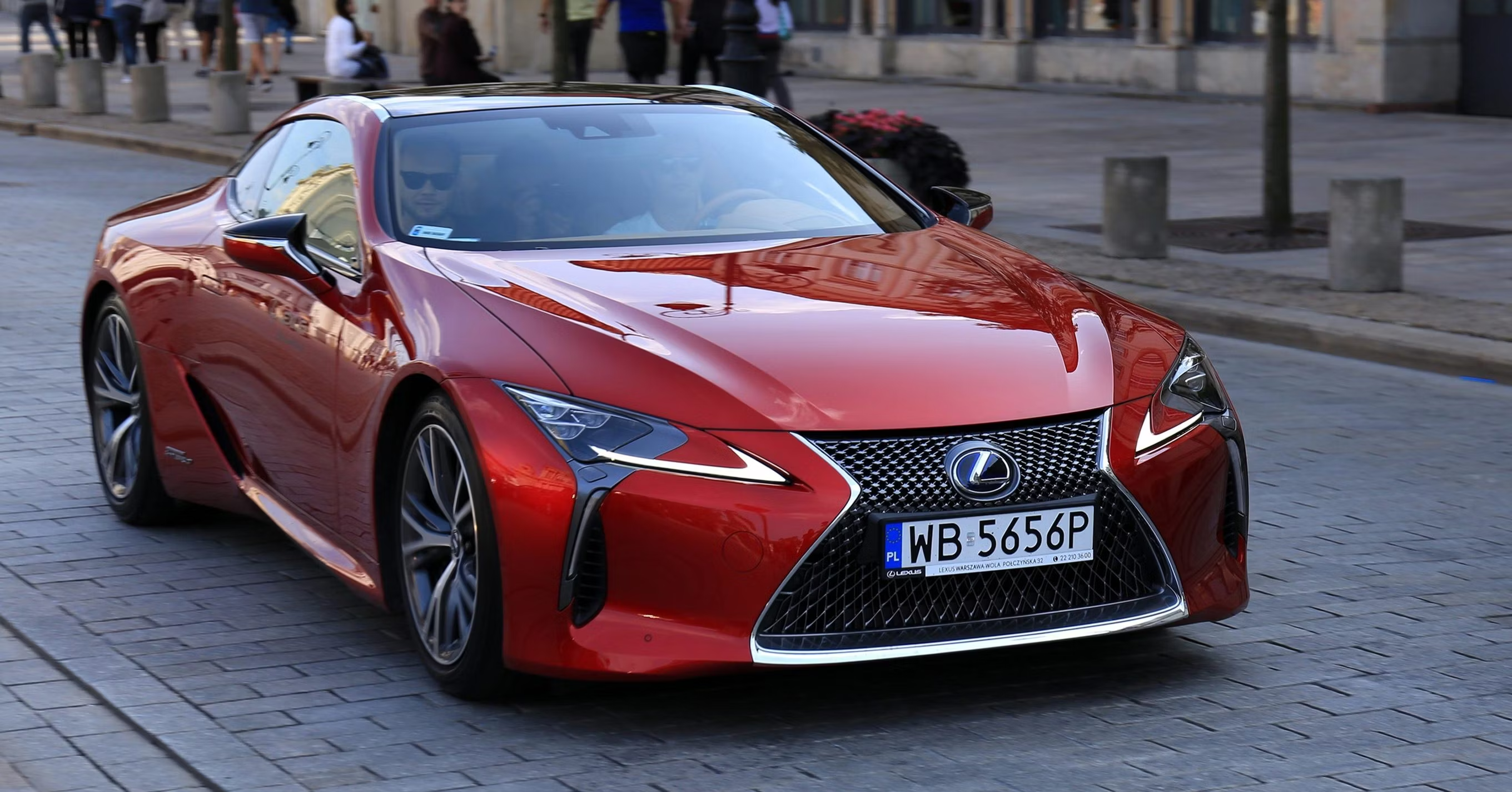As environmental concerns grow, the automotive industry is transitioning to more fuel-efficient models. These vehicles not only minimize the carbon footprint but also provide significant fuel cost savings. In this article, we look at the best fuel-efficient automobiles of the year, catering to a wide range of needs and preferences, guaranteeing that there is a car for every driver.
Why Fuel Efficiency Matters
Fuel efficiency stands as a pivotal factor for many car buyers, influenced by both environmental and economic factors. Higher fuel efficiency means less fuel consumed for the same distance, resulting in lower emissions and reduced fuel expenses. It’s also a key factor for those participating in car auctions, seeking valuable and efficient vehicles. You can visit the salvage auction where savvy buyers can find a range of fuel-efficient models at competitive prices.
Evaluating Fuel Efficiency
Fuel efficiency is typically measured in miles per gallon (MPG) in the United States or liters per 100 kilometers (L/100km) in other parts of the world. However, real-world efficiency can vary based on driving habits, vehicle maintenance, and other factors. When considering a fuel-efficient car, it’s crucial to look beyond the EPA ratings and consider real-world testimonials and performance records.
Prospective buyers should analyze the complete lifecycle emissions of a vehicle, including manufacture, fuel production, and end-of-life disposal, to acquire a comprehensive picture of its fuel efficiency. Modern tools and resources, such as online fuel efficiency calculators and mobile apps, can provide a more complete picture by assessing the total carbon footprint and fuel expenses over the car’s lifetime. Furthermore, interacting with current owners and reading consumer evaluations can provide essential insights about the car’s performance under various conditions and over time, ensuring that the decision is consistent with both economic and environmental aims.
Top Fuel-Efficient Cars
1. Electric Vehicles (EVs)
EVs lead the pack in fuel efficiency, with many models offering the equivalent of over 100 MPG. They are perfect for city driving and short commutes. Notable mentions include the Tesla Model 3 and the Nissan Leaf, both offering impressive range and minimal environmental impact.
Advances in battery technology and charging infrastructure are increasing the utility and appeal of electric cars. Many new EV models are being released with better ranges and faster charging capabilities, making them more suitable for longer journeys and diverse lifestyles. Governments and the corporate sector are investing in increasing the network of public charging stations, making it more convenient for EV owners. Furthermore, financial incentives such as tax credits and rebates are becoming increasingly common, lowering the entry barrier for prospective consumers and hastening the transition to sustainable transportation alternatives. These elements, taken together, are progressively raising the global adoption rate of electric vehicles, highlighting their significant importance in the future of transportation.
2. Hybrid Vehicles
Hybrids combine a gasoline engine with an electric motor, offering a balanced mix of performance and efficiency. The Toyota Prius, known for its reliability and fuel economy, continues to be a top choice. Additionally, the Honda Insight and the Hyundai Ioniq Hybrid provide excellent fuel efficiency with more conventional designs.
In response to the increased demand for environmentally friendly transportation, automakers are expanding their hybrid offerings to include a wide range of body styles and sizes, from compact cars to SUVs and trucks. This enlargement eliminates the need for users to sacrifice space or usefulness to achieve higher fuel efficiency. For example, the Toyota RAV4 Hybrid and the Ford Escape Hybrid combine the mobility and higher seating position of an SUV with the fuel-saving advantages of hybrid technology. Furthermore, developments in hybrid systems are resulting in longer battery life and regeneration capabilities, which enhance fuel efficiency and reduce the need for frequent gas station stops. As technology advances, these vehicles become more intelligent, offering a seamless transition between electric and gasoline power for optimal performance and efficiency in a broader variety of driving circumstances.
3. Plug-in Hybrid Vehicles (PHEVs)
PHEVs allow for short-range, fully electric driving with the flexibility of a gasoline engine for longer trips. Models like the Toyota Prius Prime and the Chevrolet Volt offer the best of both worlds, with considerable all-electric range and total gas-electric efficiency.
Furthermore, PHEVs are gaining popularity in the market due to their capacity to accommodate a broader range of driving patterns and preferences. Daily commutes can be accomplished entirely on electric power for individuals who have access to charging stations at home or work, significantly lowering fuel use and pollution. When longer excursions are required, the conventional engine takes over, minimizing the range anxiety that comes with pure electric vehicles. This dual capability makes PHEVs particularly tempting to consumers who want to switch to electric vehicles but are hesitant to commit owing to range or charging problems. Models such as the BMW i3 with Range Extender and the Volvo XC60 T8 plug-in hybrid are broadening the options, providing elegance and performance while improving environmental credentials. This combination of comfort, efficiency, and versatility establishes PHEVs as an appealing option for environmentally aware drivers looking for practical and sustainable car options.
4. Diesel Vehicles
Though less common in the US, diesel vehicles offer better fuel efficiency than their gasoline counterparts. The Chevrolet Colorado and the GMC Canyon are examples of diesel trucks that offer better fuel economy alongside traditional truck capabilities.
Modern diesel engines have undergone substantial advances in emission control systems, resolving prior worries about pollutants like nitrogen oxides and particulate matter. Manufacturers have included modern systems such as selective catalytic reduction and diesel particle filters, making current diesel vehicles significantly cleaner than older versions. Diesel can now meet severe emissions rules while preserving their fuel economy and torque benefits. Diesel-powered passenger cars are available in a variety of European markets, including models from Volkswagen, Mercedes-Benz, and BMW, demonstrating that diesel technology remains a viable alternative for consumers who value fuel efficiency and long-distance cruising. As a result, diesel vehicles have a limited but substantial presence in the global automotive market, particularly for drivers who require heavy-duty vehicles or travel great distances frequently.
5. Fuel-Efficient Gasoline Cars
For those not ready to make the jump to hybrid or electric vehicles, there are still many gasoline cars that offer great fuel efficiency. The Mitsubishi Mirage and the Honda Fit are notable for their compact size and efficient engines.
Other gasoline automobiles with high fuel efficiency include the Toyota Corolla and the Kia Rio. These vehicles benefit from innovative engineering approaches such as aerodynamic designs, lightweight materials, and efficient powertrains, which help to cut fuel consumption while maintaining performance. Furthermore, many of these efficient gasoline vehicles include modern features such as start-stop systems, which turn off the engine at idle to conserve fuel, and innovative transmission systems, which optimize engine power and eliminate unnecessary fuel consumption. This makes them appealing to buyers looking for cost-effective transportation options that retain the ease and familiarity of regular gasoline engines. As manufacturers continue to innovate, the future of fuel-efficient gasoline vehicles appears promising, providing consumers with a diverse range of options to meet their driving needs and environmental concerns.
Factors Affecting Fuel Efficiency
While choosing a fuel-efficient car is a step in the right direction, several factors can impact the actual efficiency you achieve. Regular maintenance, tire pressure, driving habits, and even the type of fuel used can significantly affect your vehicle’s performance.
Weather, road conditions, and traffic patterns can all have an impact on a vehicle’s fuel efficiency. Cold temperatures, for example, might lead to increased fuel consumption since the engine needs more energy to warm up and maintain proper operating conditions. Driving on steep or mountainous terrain requires more engine power than on flat routes, resulting in higher fuel consumption. Similarly, frequent stops and starts in urban traffic can reduce efficiency when compared to consistent speeds on wide highways. Understanding these characteristics can help drivers make informed decisions to reduce their vehicle’s fuel consumption, such as utilizing climate control systems sparingly, planning routes to avoid heavy traffic, and employing smooth driving tactics. By paying attention to these elements, automobile owners can increase their vehicle’s fuel efficiency, resulting in cheaper running expenses and a smaller environmental effect.
Final Thoughts
Choosing a fuel-efficient car is a wise decision for both the planet and your wallet. Whether you’re interested in a fully electric vehicle, a hybrid, or a fuel-efficient gasoline car, there are numerous options available to meet your needs and preferences. By considering the factors that affect fuel efficiency and staying informed about the latest automotive trends, you can make a choice that aligns with your environmental values and driving requirements. Remember, every small step towards greater fuel efficiency contributes to a larger impact on reducing global emissions and fostering a sustainable future.




